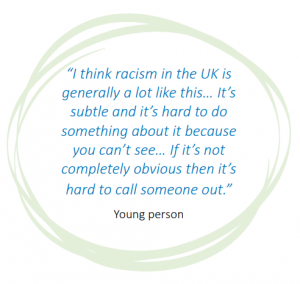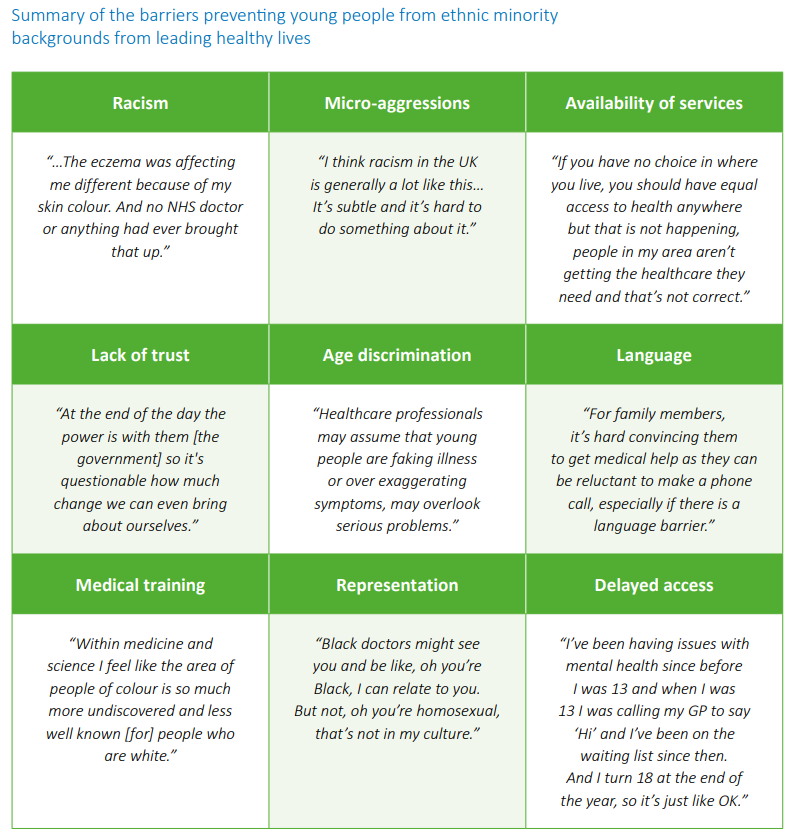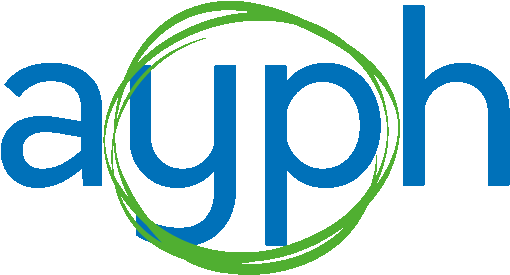In this blog post, Rachael McKeown explores the evidence on the health inequalities experienced by young people from ethnic minority backgrounds. New AYPH reports present the latest available data and experiences of young people who took part in a youth panel.
 Research has found that ethnic minority groups generally have poorer health outcomes compared to the overall population. Yet there is less information available specifically about health inequalities among young people from these groups. As part of our health inequalities policy programme we worked with the Race Equality Foundation to get a clear picture of their experiences.
Research has found that ethnic minority groups generally have poorer health outcomes compared to the overall population. Yet there is less information available specifically about health inequalities among young people from these groups. As part of our health inequalities policy programme we worked with the Race Equality Foundation to get a clear picture of their experiences.
Data on ethnic health inequalities of young people
First, we reviewed a range of publicly available data sources for information from NHS statistics to the Department of Health and Social Care. Despite data limitations, there were some striking results, which are shared in our data report. This builds on our earlier work compiling relevant data on young people’s health inequalities through the lens of deprivation status, which can be found on our Youth Health Data Hub.
Key statistics:
- Obesity – Other Black young people were 1.6 times more likely to be obese compared to White British young people (NHS Digital, 2021)
- Mental health – Black young people are 10 times more likely to be referred to CAMHS via social services, rather than via the GP, compared to White young people (Kapadia et al, 2022).
- Vaccination rates – Chinese young people aged 12-15 were 6 times more likely to receive the Covid-19 vaccine compared to both Gypsy Roma and Black Caribbean young people (ONS, 2022).
- Hospital admissions – In 2020/21, 10.4 per 100 Black young people aged 10-24 were admitted to hospital, compared to 1.7 per 100 Chinese young people (NHS Digital 2022; ONS 2012).
- Poverty – 57.8% of Traveller young people of Irish heritage are eligible for FSM, compared to 7.1% of Chinese young people (Department for Education, 2022).
Young people’s experiences of racism and inequalities
Alongside the data review, we set up a youth panel to hear the everyday experiences of a small group of ethnic minority young people, to explore young people’s experiences of racism and the barriers they faced in accessing healthcare services. In our engagement report, we share the experiences of the young people involved.
Young people described the racism they experience in their everyday life, including negative school experiences and limited access to services where they lived. Micro-aggressions are commonplace in society, which the young people described as “silent assumptions”. These incidents can have a profound impact on how young people view themselves within society and how they interact with professionals. The youth panel highlighted a number of barriers that they felt young people from ethnic minority backgrounds faced that could prevent them from leading healthy lives and accessing high-quality healthcare.

It is clear that young people from ethnic minority groups are more likely to face health inequalities. Racism plays a role in causing these inequalities and must be tackled head on, as a matter of social justice. The young people we worked with identified a number of solutions to tackle racism and health inequality. Their recommendations included building strength and power within local communities, increasing education among young people and professionals, and increasing Government investment in young people’s health.
Download our summary report, download our data report and download our engagement report
References
Department for Education (2022) Schools, pupils and their characteristics. UK Government.
Kapadia, D., Zhang, J. & Salway, S. et al. (2022) Ethnic Inequalities in Healthcare: A Rapid Evidence Review. London: NHS Race & Health Observatory.
NHS Digital (2021a) National Child Measurement Programme, England 2020/21 School Year. NHS Digital: National Statistics.
NHS Digital (2022) Hospital Admitted Patient Care Activity – England. NHS Digital: National Statistics.
Office for National Statistics (2012) 2011 Census data.
Office for National Statistics (2022) Coronavirus (Covid-19) vaccination uptake in school pupils, England: up to 9 January 2022.

